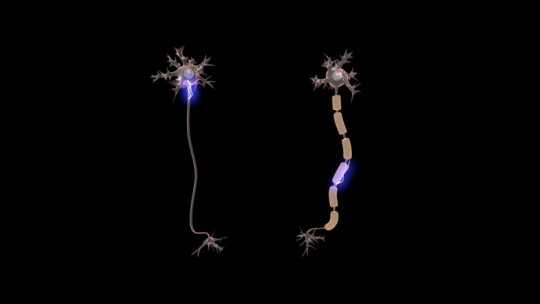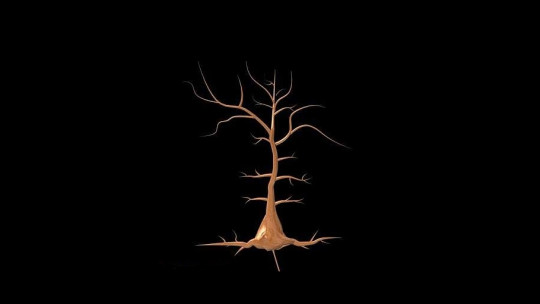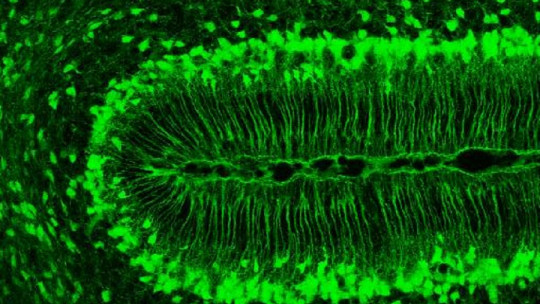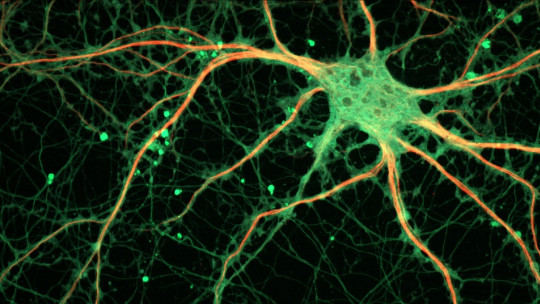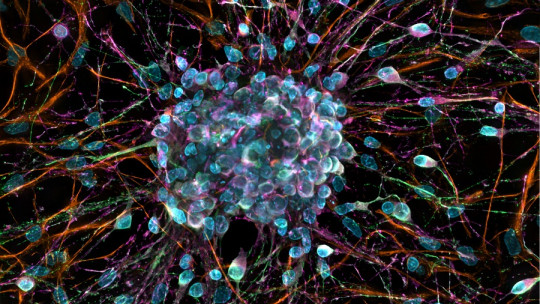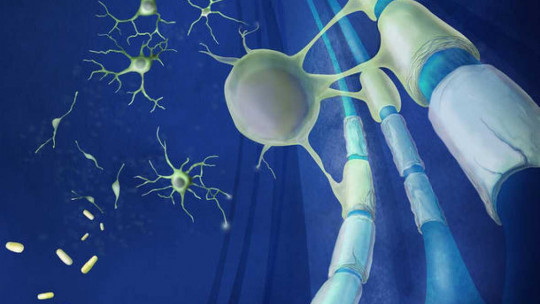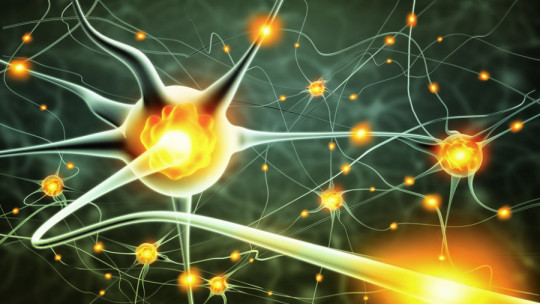Neurons are specialized cells that fulfill a wide variety of functions that are very important for the proper functioning of the nervous system and, therefore, of the entire organism. These highly relevant cells may have a longer lifespan than many people would believe.
When trying to think about how long a neuron lives, it is quite possible that the idea comes to mind that they do not usually live for a long time. We have probably heard, read or discovered somewhere that the cells in our body tend to be destroyed. and renew itself continuously; However, this process is not the same in the case of neurons.
In this article we are going to explain how long a neuron lives ; But first we will see what a neuron is exactly, what its main functions are and we will also briefly explain the different types of existing neurons.
What exactly is a neuron?
Neurons are specialized cells that are responsible for making up the nervous system. Among their main functions, it is worth highlighting that they are responsible for receive, process and transmit information through two different types of signals : chemical and electrical, this being possible due to the electrical excitability of the plasma membrane they have, which is a layer that delimits the entire cell.
Neurons are divided into different parts: the neuronal body or soma, the nucleus, the axon, the dendrites, the myelin sheath, the nodes of Ranvier, the substance of Nissl, the synaptic boutons and, finally, we can find the cone. axonal.
Likewise, neurons are responsible for receiving various stimuli and also for the conduction of nerve impulses between neurons through connections called “synapses” or also with other types of cells (e.g., muscle fibers).
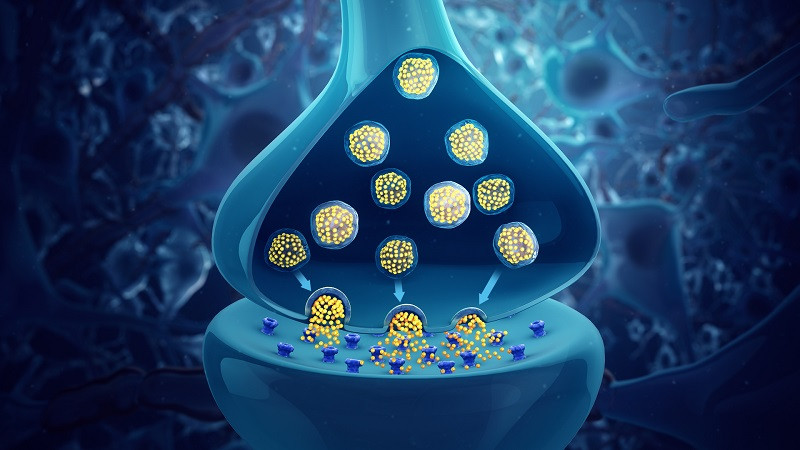
There are three types of neurons: sensory neurons, which are usually responsible for transporting information from the sense organs (e.g., eyes) to our brain; Motor neurons would be those that have long axons and are responsible for transporting information from the central nervous system (CNS) to the muscles and also to the glands of the body; Finally, there are interneurons, which are those with shorter axons and are responsible for establishing communications between neurons, never with muscle fibers or sensory receptors.
On the other hand, Neurons are created from stem cells in the subgranular zone in the hippocampus and also in the subventricular zone in a process known as “neurogenesis” (the birth of new neurons). Normally the neurons of adults do not have the capacity to reproduce; However, some more recent studies claim that it has been observed that some types of neurons do reproduce.
How long does a neuron live?
Let us now address the issue of the longevity of human neurons. If we stopped to think about how long a neuron lives, we would probably imagine that these specialized cells of our nervous system do not live too long, as happens with other types of cells present in our body; However, this idea is not true since The lifespan of neurons differs greatly from that of other cells that normally reproduce and destroy themselves continuously throughout our lives.
Thanks to research carried out over the last few years, it has been proven that the neurons we have in our brain are the same years old as us, since they were present there from our birth, unlike what happens with cells from other parts of our body that are replaced from time to time (for example, skin cells usually renew themselves every month).
Therefore, if someone asked us how long a neuron lives, they would probably be surprised by our answer now that we have been able to find it, thanks to the data revealed by various investigations that neurons could live even longer than we do. What’s more, some scientific theories have developed the hypothesis about the possibility that they can live infinitely.
If this were true, with future advances in science and medicine, along with good lifestyle habits, if human beings managed to significantly increase their life expectancy (e.g., reaching over 120 years of age) the neurons will continue to function which could be quite encouraging.
Furthermore, through specialized research on the subject it has been observed that when a person dies, a large percentage of their neurons remain intact; In other words, those neurons that accompany a person until the end of his days, actually did so from the moment he was born. But despite this, when the person’s body stops functioning, the neurons are progressively destroyed.
Does that mean that neurons are not destroyed throughout our lives?
There is a study that was carried out in 2013 by the neurosurgeon Magrassi and his collaborators where they investigated with some mice that consisted of making a neuronal implant from the brain of some mice to that of other mice. The results were surprising, since These transplanted neurons lived up to 36 months on average longer than the mice that carried them in their brains
The conclusion of this study reaffirmed the hypothesis of other research about the possibility that some neurons could perhaps be immortal if they were in a body that was capable of keeping them alive.
Now, although there are neurons that are born with a person and die when they die, it does not mean that all the neurons that that person has in their brain live the same life as them. Actually, The brain can retain a part of the total number of neurons that the person had at birth throughout their life
It is worth mentioning, on the other hand, that there is a process known as “neural pruning”, through which over the years those synaptic connections that are not used are eliminated, being a process contrary to what happens when certain synaptic connections are used a lot. connections between neuronal in such a way that these are reinforced and could also become interconnected with new ones.
On the other hand, Neuronal death usually occurs due to some degenerative disorders , such as different types of dementia and could also be caused by different traumas experienced, especially at an early age or due to some infectious, immunological or inflammatory diseases, among others. However, another process known as neuronal regeneration or neurogenesis can also occur, which would be the ability of neurons to regenerate, although this usually only occurs in some areas of the brain, so it is not very common.
This neurogenesis normally occurs in two parts of the brain , the olfactory bulb, which is the brain area in charge of smell (although in this case it normally only happens up to 18 months of age) and, the hippocampus, which is the brain area that is especially involved in memory and also in navigation through the environment. Beyond isolated cases and certain brain regions, such as those just mentioned, the rest of the neurons we have are the same age as us and will accompany us for the rest of our lives.
Could the lifestyle we lead influence the lifespan of our neurons?
When thinking about how long a neuron lives, the question may also come to mind about whether our lifestyle could influence the length of life of these cells. This question could be answered with a yes but with nuances since there are various factors that influence the life of neurons, as well as health in general, that are beyond our control (e.g., suffering from some diseases). ).
However, it is known that there are various factors that we can control and that can favor the prolongation of life and, therefore, the maintenance of a greater number of neurons for as long as possible.
Therefore, what we can do to keep our neurons in better condition are good habits and a healthy lifestyle (e.g., maintaining a good diet, practicing physical exercise, learning continuously throughout our life). life, etc.) since it has been discovered that good habits prevent cognitive decline and at the same time help strengthen brain synapses.
Besides, bad habits, such as alcohol and other substance abuse as well as sedentary lifestyle and lack of continuous learning, although no conclusive results have been found regarding the hypothesis that states that they could destroy neurons directly, it has been observed that they harm the development of synapses neurons and this can affect various brain connections responsible for reinforcing various functions such as memory or logical reasoning, among others.
Besides, If these bad habits begin to develop at an early age, this could harm correct and complete brain development so that the full potential is not achieved and this could have notable negative consequences in the long term.


